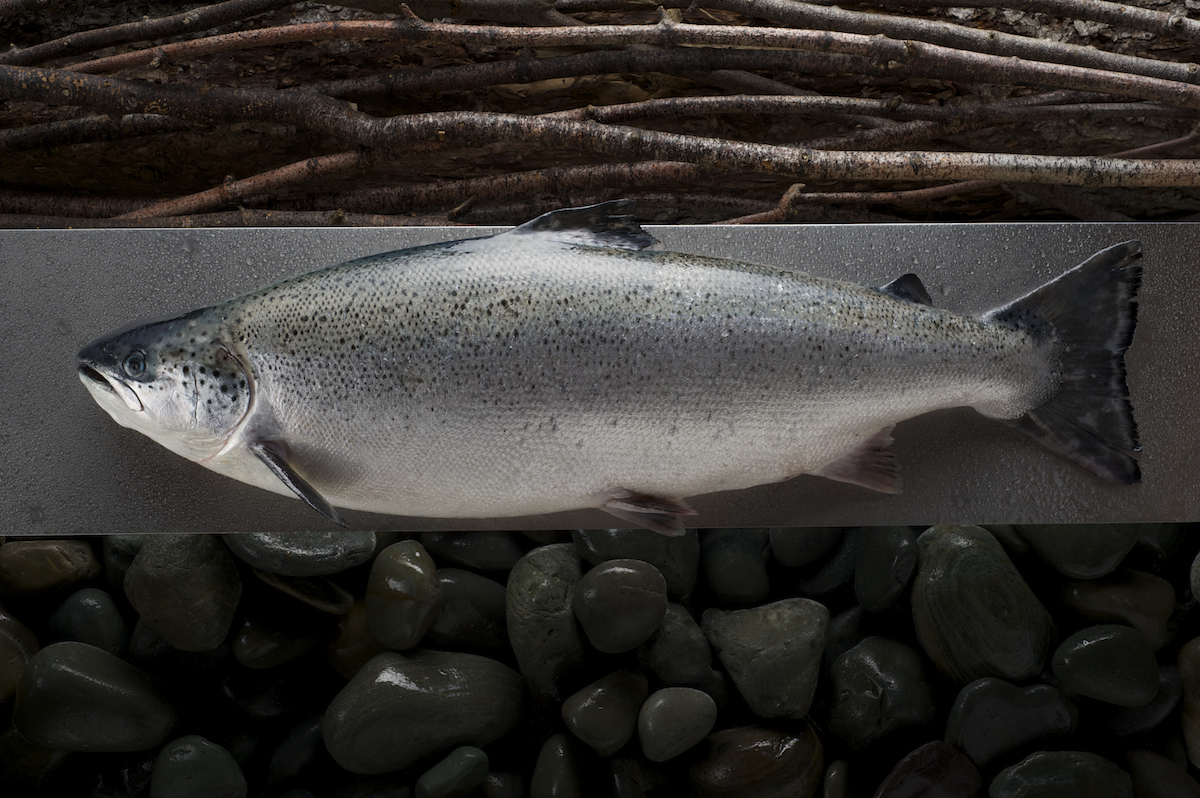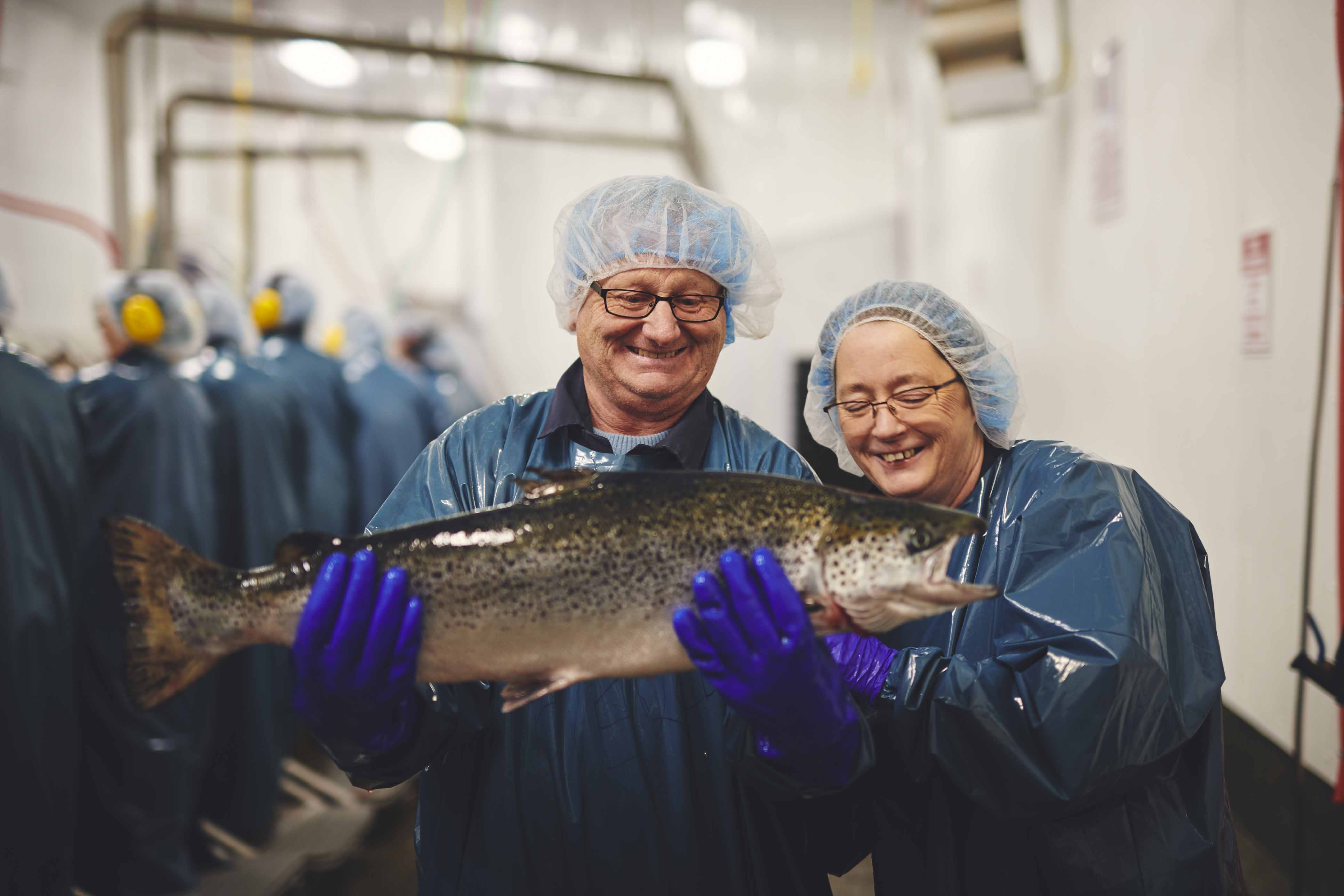Atlantic Salmon
Atlantic salmon, or its technical name, Salmo salar, which translates into “the leaper,” is known for its finesse and form as it leaps in and out of the water. The average adult weighs anywhere from 2-10 kg, although some can grow to much greater sizes. Since Atlantic salmon require relatively warm water throughout the winter, all finfish production in Newfoundland occurs along the south coast of the province. The safely sheltered bays that stay free of icebergs in the winter months make the south coast the perfect place for salmon farming.
Our farmers mimic the natural life cycle of salmon as closely as possible. The farmed fish start their lives in fresh water and then move to salt water just as they do in nature. Farmed Atlantic salmon begin their life cycle as eggs, which are collected from adult salmon broodstock. The eggs are reared in land-based freshwater hatcheries for 12 to 18 months. When the young fish are biologically ready to move to salt water, farmers move the fish to ocean farms where they remain for the next 18-24 months in large floating pens that are moored to the ocean floor and built to withstand the challenging ocean tides.
Atlantic salmon are often swimming in the cold, clear ocean water right up until the moment a supplier places an order. Farmers harvest, process and ship fresh Atlantic salmon daily, ensuring a steady and fresh supply all year long. Farmed salmon are processed, packaged, and shipped typically within 24 to 48 hours.
All Atlantic salmon processing facilities are provincially licensed and federally registered and adhere to the requirements of the internationally recognized Quality Management Program. This program is enforced and monitored by the Canadian Food Inspection Agency through regular plant audits.
For more information on how salmon are farmed, check out our fact sheets:


